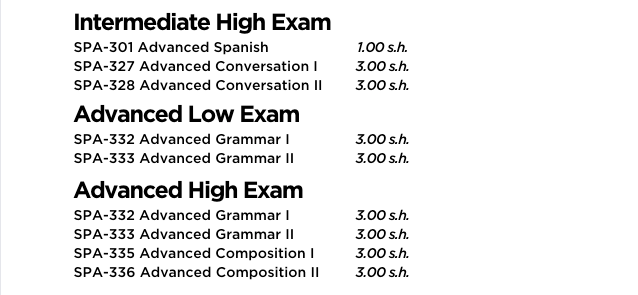Foreign Language Learning For the World Christian
Next year, 2024, will mark the 50th anniversary of the Perspectives on the World Christian Movement, the adult education course with 250,000 alumni that has done much to mobilize the Christian Church for world mission. For two decades I have supervised graduate students taking Perspectives and commiserate with Professor Elayne Clift about the deteriorating state of students’ work.
How could it be that graduate students delivered such appallingly poor papers and presentations? They’d gotten undergraduate degrees; why couldn’t they write in sentences? Why were they devoid of originality, analytical ability, intellectual curiosity? (1)
The academic landscape has changed vastly in the last half century with online information technologies, exorbitant tuition, and declining standards. Sadly, student expectations that higher learning should entail minimal rigor have crept into the missionary enterprise. The mindset to “let the world learn English” impedes the necessary bonding with a new culture. Attrition from the field is more likely when an inherent lack of foreign language skill is paired with a persistent bond to the home culture via social media and electronic devices.
Their laptops and smartphones provide them unlimited access to their families and own culture and it makes it much more difficult to do the work of incarnation. Incarnation…is perhaps the most important part of the “successful” missionary’s life abroad. (2)
Only 20 percent of U.S. secondary school students studies a foreign language. Moreover, only a tiny fraction thereof advances to a third or fourth year, where creativity and critical thinking skills are honed. At the college level, the decline is precipitous with only 7.5 percent of students enrolled in any foreign language course (3). And that percentage has been steadily declining given the shuttering of hundreds of university foreign language programs (4). This trend is bizarre given that
Of all the skills that a person could have in today’s globalized world, few serve individuals – and the larger society – as well as knowing how to speak another language. People who speak another language score higher on tests and think more creatively, have access to a wider variety of jobs, and can more fully enjoy and participate in other cultures or converse with people from diverse backgrounds. (5)
Interventions against this drift begin with parents, teachers, and influencers (youth and missions pastors) of middle and high school students, who must encourage the teens to stick with language learning. Even earning C grades is a worthwhile tradeoff so that a working knowledge of a foreign tongue is inculcated. Yes, rigor is required, but look at the potential rewards.
A foreign language learned in high school can become instant college credit. The College Level Equivalency Program (CLEP) offers 90-minute, multiple choice subject examinations in Spanish, German, and French for $90. If the cost of a four-year Bachelor’s degree is $100,000 and the 12 semester hours earned by exam comprises ten percent of that degree, do the math and consider the stewardship opportunity. But what about other languages such as Chinese also taught in high schools? From Afrikaans to Yoruba, New York University offers challenge exams in 40 languages also worth 12 semester hours each.
I am all for young adults taking a “gap year” between high school and college, but most are oblivious to the value of spending that gap year embedded in a foreign culture. If they did so, they then could undergo the Oral Proficiency Interview (OPI) with a native speaker evaluator. For about $500, up to 19 semester hours of additional college credit can be earned via one OPI telephone call and transcripted as follows using Spanish as an example (6).

When coupled with the beginning level 12 semester hours from CLEP or NYU exams, the total of 31 semester hours completes a quarter of a Bachelor’s degree. This is a near guarantee at Thomas Edison State University and other such non-resident colleges. Yet careful shopping reveals favorable transfer policies at other schools, too. I earned college credit by exam from high school Spanish. But of far greater significance, I had mastered how to learn a foreign language as a teenager. Next, as a young soldier in Cold War Germany, I netted 30 semester hours in German from the CLEP and University of Maryland challenge exams. Twenty years later, that background aided me in learning Turkish at the Defense Language Institute.
Missions mobilization is often construed as an arduous task. It need not be when one considers the nation’s 3.2 million high school graduates annually. If ten percent of these come from evangelical homes, then there’s a good 300,000 each year to be mobilized by parents and other influencers, at ages 14-15, to study a foreign language. No es difícil.
- Elayne Clift, “From Students, a Misplaced Sense of Entitlement,” Chronicle of Higher Education, March 27, 2011, https://www.chronicle.com/article/Students-Should-Check-Their/126890
- Thomas Schaefer, Marguerite Barta, William Whitley, and Margie Stogsdill, “You Owe Me! Mentality: A Student Entitlement Perception Paradox,” The Journal of Higher Education 2013 https://files.eric.ed.gov/fulltext/EJ1144111.pdf
- Foreign Language Classes Becoming More Scarce, The Conversation, February 6, 2019, http://theconversation.com/foreign-language-classes-becoming-more-scarce-102235
- Steven Johnson, “Colleges Lose a ‘Stunning’ 651 Foreign Language Programs in Three Years,” Chronicle of Higher Education, January 22, 2019, https://www.chronicle.com/article/colleges-lose-a-stunning-651-foreign-language-programs-in-3-years/
- Op. Cit.
- Personal communication from Todd Siben, Assistant Director, Portfolio Assessment, Thomas Edison State University, December 15, 2016, www.tesu.edu
Written by: Doug Batson, a National Certified Career Counselor and alumnus of Thomas Edison State University. He also holds the German Language Diploma of the Goethe-Institut.
